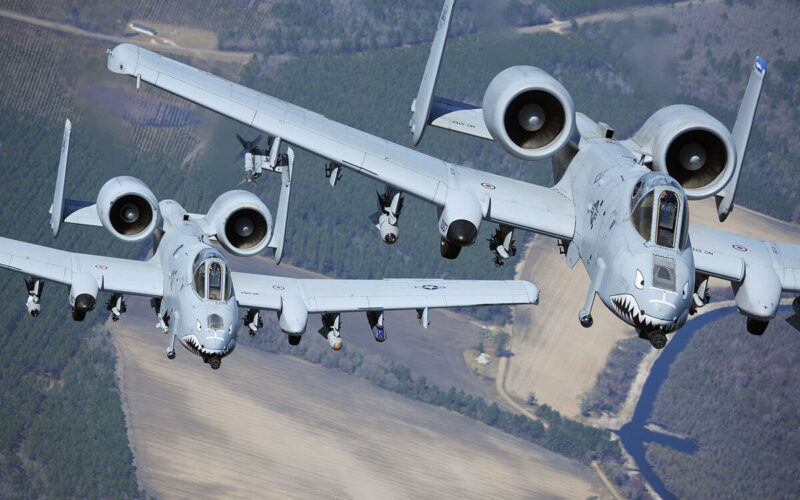The US Air Force (USAF) plans to retire the Fairchild Republic A-10 Thunderbolt II attack aircraft by 2029.
The plan was laid out by USAF Chief of Staff CQ Brown during an Air and Space Forces Association (AFA) Warfare Symposium in early March 2023.
Over the coming year, USAF’s fleet of A-10s will be reduced from 281 to 260 by reequipping Air National Guard’s 163rd Fighter Squadron with General Dynamics F-16 Fighting Falcons.
“I would say over the next five or six years, we will probably [have] the A-10 out of our inventory,” Brown said, according to Defense News.
Not up-to-date
Proposals to retire the A-10 have been considered for over a decade, with the USAF laying out several plans to do so, only for those plans to be rejected by the US Congress.
Obsolescence of the aircraft – which was originally designed back in the 1960s and 70s and is said to be not adequate for the modern combat environment – has been put forward as the main argument for retirement.
“The A-10 is a great airplane … in an uncontested environment,” Defense News quoted Brown as saying.
The A-10’s focus on ground attack is also quoted as being to its detriment, as the rest of aircraft in USAF’s fleet can perform numerous missions, strike and including close air support. The A-10 only has one role, though, and therefore is “too limited,” Brown said.
The cuts have already been outlined in USAF budget proposal for 2023, which significantly reduced the amount of money dedicated to the upkeep of several legacy platforms, including the A-10.
However, this is the first time an USAF official laid out a concrete plan for the gradual phasing-out of the aircraft.
A relic of bygone era
The A-10 has many distinct features, including relatively heavy armor and the GAU-8, a 30 mm rotary canon designed to penetrate tank armor.
However, the rise of short-range air defenses, including man-portable air defense systems (MANPADS), made close-range attacks a dangerous affair, and fueled the transition towards guided missiles and bombs becoming USAF’s close air support weapons of choice.
While the A-10 saw heavy use in various conflicts, including the operation Desert Storm and the war in Afghanistan, it has been largely sidelined by more modern aircraft, and said to be not capable of surviving in a conflict with near-peer adversary.
The Russian invasion of Ukraine may have contributed to the A-10’s demise, as the Soviet equivalent of the A-10, namely the Sukhoi Su-25, was shown to be highly vulnerable to air defenses.
For both Russia and Ukraine, it has been the most shot-down aircraft of the war, as demonstrated by Oryx blog, which catalogues visually confirmed losses in the conflict.
The losses have been sustained even despite the aircraft being largely unable to play its intended role of close air support, and mostly resorting to stand-off strikes with unguided weapons.

